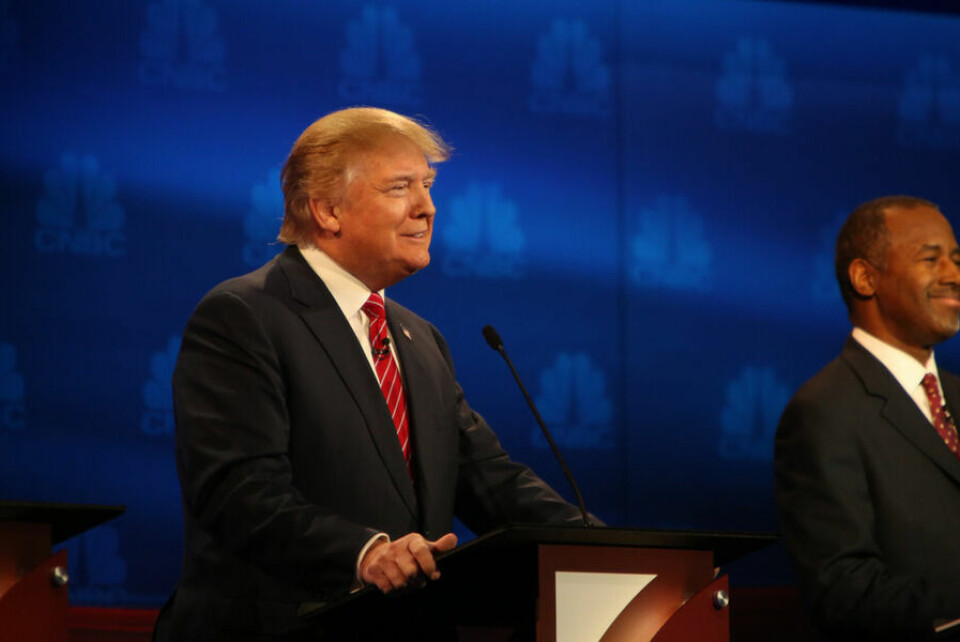
President Trump: An uncertain future for tech industry, digital rights
IDG NEWS SERVICE: The new president's tech policy agenda is thin, and what little there is makes IT nervous.
U.S. President-elect Donald Trump's vision for the country's economy-driving technology industry is largely a blank canvas, and when he's dipped his toe into IT issues, he's made people nervous.
Trump's campaign was dominated by debates over illegal immigration, lost manufacturing jobs, and character issues. Silicon Valley firms largely opposed Trump, and one of his signature issues, rewriting free trade deals between the U.S. and other nations, likely will hurt U.S tech companies' ability to sell products overseas.
Meanwhile, digital rights groups say they expect Trump to call for expanded government surveillance programs to fight terrorism and fewer protections for privacy. And a Trump administration will likely work to gut net neutrality rules that the Federal Communications Commission passed only last year, although repealing the rules won't be easy.
Several tech groups congratulated Trump on his unexpected victory, but others said they're concerned about Trump's lack of a tech agenda and his call for a boycott of Apple when it refused to assist the FBI to break into the iPhone of a criminal suspect.
I am not thinking of anything to be optimistic about.
"I am not thinking of anything to be optimistic about" after Trump's election, said one tech trade group executive on background.
Expect Trump to call for backdoors in encryption, based on his Apple comments, said Chris Calabrese, vice president of policy at the Center for Democracy and Technology. And Trump's plan to identify and deport some or all illegal immigrants could lead to invasions of privacy, he said.
Still, some of Trump's more conservative supporters could push for increased privacy protections in their advocacy for the Constitution's Fourth Amendment protections against search and seizure, Calabrese noted. Trump's policy on privacy is unclear, and it's not known who his major appointees will be, he said.
"We just recognize that the next four years could be very challenging, and it's up to us to explain to the American people why internet freedom and the things we value are important to them," Calabrese added. "Anything of value has to be fought for sometimes."
Like digital rights groups, the tech industry has a lot of questions about Trump's policies, said James Reid, senior vice president of government affairs at the Telecommunications Industry Association, a trade group representing network equipment manufacturers and suppliers.
Trump released little information about his tech policy agenda during the campaign. He gave one speech about cybersecurity in October, with some of the positions echoing things already being done in government. Trump published a four-point, 179-word plan on cybersecurity at the same time.
Only on Election Day, the Trump team added the word, "telecommunications," to his website's plan for government investments in U.S. infrastructure, according to the TIA. There are no details.
Trump's positions on trade during the campaign worry many tech companies, even though Republicans, who will still control both houses of Congress, have generally supported free trade.
The tech industry also doesn't have a clear understanding about Trump's views on spectrum policy and on intellectual property, Reid said.
The uncertainty over Trump's positions on a range of issues "makes people nervous," Reid said. Democrat Hillary Clinton's campaign put out position papers on a number of issues, and "they had people who understood these issues and cared about them."
There are still more question marks than answers.
Trump released a "leaner set of policy papers," Reid added. "For the day after, there are still more question marks than answers. That's probably as disconcerting as any particular policy statement."
Trump voiced strong opposition to the Trans-Pacific Partnership and other trade deals, but it's unclear what the alternative is, Reid added. Would he renegotiate the TPP and other trade deals? Would he stop pursuing new trade deals?
Rob Atkinson, founder and president of the Information Technology and Innovation Foundation, a tech-focused think tank, sees a Trump presidency as a "mixed bag" for the tech industry.
While Trump may try to rewrite trade deals, he may also look to enforce trade obligations in deals with countries like China and Mexico, Atkinson said. China and other countries "have put the gun to tech's head" through requirements such as local investments, he noted.
Trump should be "a lot tougher" on trade enforcement than President Barack Obama's administration has, Atkinson predicted.
Otherwise, expect Trump to push for corporate tax reform, with a Republican Congress eager to go along with his plans to cut taxes, Atkinson added. Many tech companies will welcome those changes.
You can kiss high-skill immigration goodbye.
On the negative side for many IT companies, Trump's anti-immigration stance will likely mean the U.S. tech industry won't see an expansion of skilled worker visa programs, as many companies have pushed for, Atkinson added. "You can kiss high-skill immigration [expansion] goodbye for the next four years," he said.
Other tech policy experts were still reeling from Trump's unexpected victory.
"I'd be kidding myself if I thought I knew what to expect," said Matt Wood, policy director of digital rights group Free Press. "About anything."
It's nearly impossible to predict the impact of a Trump presidency on technology policy, he added by email. "Trump's mix of irresponsibly deregulatory policies, coupled with his embrace of utter falsehoods and ignorance about how the internet works, are alarming, to say the least," he said.






















